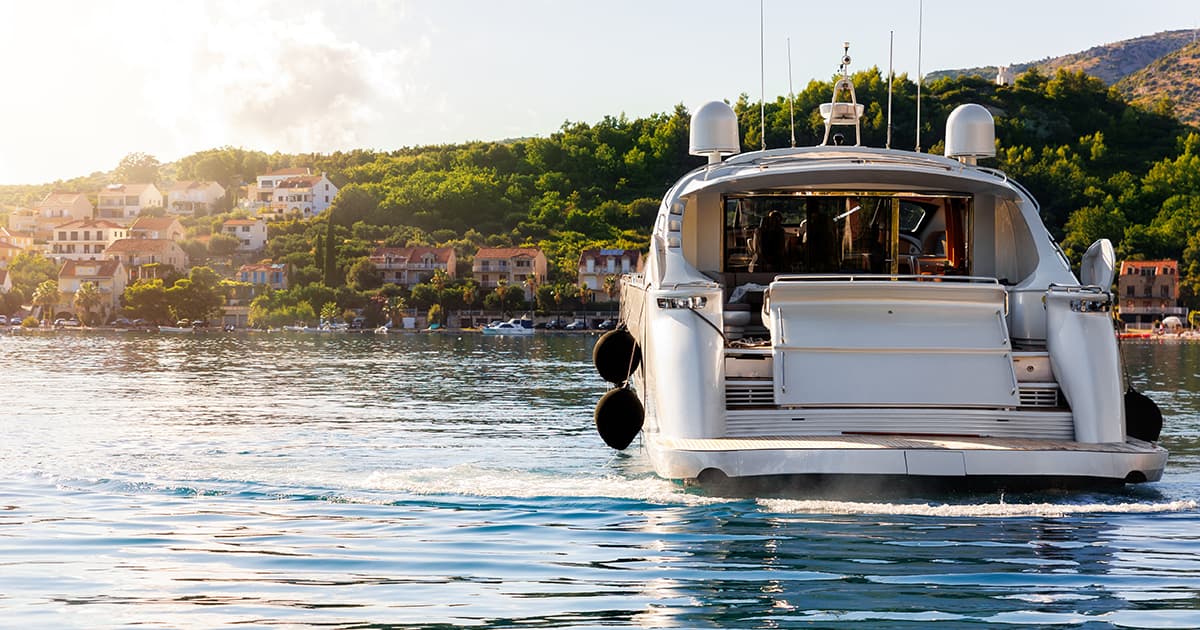Insuring a Big Boat vs. a Small Boat

When it comes to insuring boats, size does matter. Whether you're insuring a nimble 10-foot (3 metres) speedboat or a 30-foot (9 metres) cruiser, the type of boat you own significantly influences the coverage options and how much you will pay.
Here’s what you need to know about the differences between insuring a big boat (over 27 feet or 8 metres) versus a smaller one.
How much does boat insurance cost?
It really varies, which is why you’ll need to speak to a boat insurance expert to get an accurate quote. In general, the bigger the boat, the bigger the premium.
Several key factors influence insurance premiums for both big and small boats:
- Age: Older boats typically cost less to insure than newer ones, up to a certain point. As boats age, they may require more maintenance, which can offset this savings. They can also start to cost more to insure once they start to hit antique status.
- Length: It makes sense that a longer boat generally means higher insurance premiums. This is because larger boats tend to be more expensive to repair and replace, and they often carry more equipment and amenities.
- Horsepower: Higher horsepower engines increase the risk factor and can drive up insurance costs. Lower horsepower is usually associated with lower premiums.
- Engine configuration: Outboard motors are cheaper to insure than inboard motors. Outboards are easier and less costly to repair or replace, making them a more affordable option for insurance. The brand of motor you choose and how exclusive the parts are can also have a small effect on your premium.
- Hull shape and material: The shape and material of the hull can impact insurance rates. Certain materials may be more expensive to repair or replace, and specific hull shapes may be considered riskier by insurers. For example, catamarans have higher loss rates than monohulls, which has affected their risk profile internationally.
Insuring a live-aboard boat vs. a recreational boat
How you intend to use your boat is another top factor that insurers consider, especially for larger boats:
- Commercial use: If you’re using your boat for commercial purposes, expect to pay significantly higher premiums. This is due to the increased liability and potential for loss associated with commercial activities. On the plus side, you will be factoring this cost as a business expense, not a personal expense.
- Liveaboard: Living aboard your boat adds a layer of complexity. Marina requirements for liveaboard boats can be strict, which usually means you’ll have to opt for higher levels of coverage. For example, comprehensive hull coverage, which pays for the replacement value of your boat, is particularly important for liveaboards. Since all your “home” resources and many personal belongings are in the boat, you’ll want more extensive coverage, which will be reflected in higher insurance premiums.
- Recreational use: Recreational boats, especially smaller ones for freshwater use, generally have lower insurance costs. However, if you have a larger recreational vessel over 25ft (7.6 metres), the premiums will still be higher due to the increased value and repair costs.
Cost of repairs
One of the biggest differences between insuring large and small boats is the cost of repairs. Larger boats have more complex systems and more expensive materials, which can make repairs costly.
This directly impacts insurance premiums, as insurers factor in these potential repair costs when determining rates.
Why you need boat liability coverage
Regardless of the size of your boat, you should consider liability coverage absolutely necessary. For small recreational boats, liability coverage protects you if you’re at fault in an accident, preventing costly lawsuits if someone else is hurt or their property is damaged.
Even though the risks may seem smaller with a smaller boat, studies have shown that smaller boats are at a higher risk of extreme or amateur use, and any accidents can still be serious.
For larger boats, especially those used for commercial or liveaboard purposes, liability coverage is even more important due to the increased risk of significant claims. The more you use the boat, the more likely you may make a claim.
How you use your boat affects its insurance
How you use your boat — whether for commercial purposes, as a liveaboard, or simply for recreation — is also going to make a big difference in your insurance needs.
The best thing you can do for your insurance premiums is to have a detailed and accurate list on hand of your boat’s features, how/where you intend to use it, and your own experience level as a boater. Send these over to an insurance expert and they’ll be able to get you a personalized quote that matches your exact needs.
Insuring a boat is always a complex task, which is why you need to speak to a Western boat insurance expert to get an accurate, balanced quote. Age, length, horsepower, engine configuration, hull shape, and hull material all play roles in determining your premiums at the end of the day.



